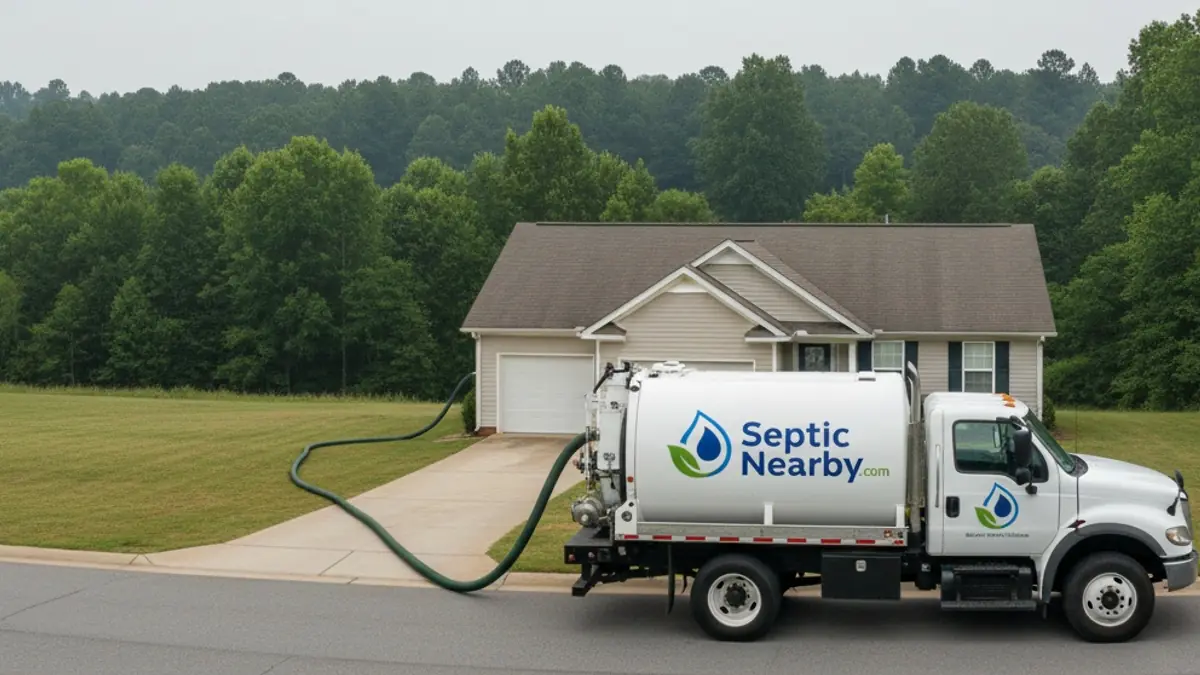Septic Pumping Services in Pierce County, GA
 Photo Illustrative
Photo Illustrative+1-470-9-SEPTIC
Operators available 7 AM - 9 PM
Licensed & Insured • No Obligation • Emergency Service Available
Cities We Serve in Pierce County
Local Septic System Factors in Pierce County
Hydrogeological Assessment of On-Site Wastewater Treatment in Pierce County, GA
For residents of Pierce County, from the established neighborhoods of Blackshear to the rural tracts near Offerman and Bristol, effective on-site wastewater management is not merely a matter of household maintenance; it is a critical component of regional groundwater stewardship. Situated within Georgia's Atlantic Coastal Plain, our county's hydrogeology is defined by a shallow water table and permeable surficial soils, primarily overlying the vital Upper Floridan aquifer. This aquifer system is the principal source of potable water for our communities, making the proper function of septic systems a direct factor in public health and environmental integrity.
The soils across Pierce County exhibit significant variability in their hydraulic conductivity. Upland areas, often characterized by Tifton and Fuquay series sandy loams, generally provide adequate percolation for conventional septic drainfields. However, a significant portion of the county, particularly in low-lying areas and near drainage ways, consists of Alapaha, Pelham, and Leefield series soils. These soil types are characterized by poor drainage and seasonally high water tables, which severely limit their capacity to treat septic effluent. When a drainfield is installed in such saturated conditions, the vadose zone—the unsaturated soil layer responsible for aerobic bacterial decomposition of contaminants—is compromised or nonexistent. This leads to system failure and facilitates direct contaminant transport into the surficial aquifer.
The primary risks associated with failing systems in our humid subtropical climate are microbiological contamination and nutrient loading. Pathogens and high concentrations of nitrates can migrate from a malfunctioning drainfield, forming a contaminant plume that can travel significant distances. In a region where private wells are common, particularly outside Patterson and Mershon, the risk of intersecting such a plume is a serious concern. The movement of these contaminants is governed by the local groundwater gradient and the porous nature of the sandy subsoils. An improperly sited or failing septic system can directly impact a neighbor's drinking water well, introducing health risks that are difficult and costly to remediate.
Effective management requires a scientific understanding of these subsurface dynamics. A comprehensive site evaluation, which goes beyond a simple percolation test, is essential. It must account for soil horizons, identify restrictive layers like clay loam lenses, and accurately determine the seasonal high water table elevation. In many parts of Pierce County, this assessment may indicate that a conventional system is inadequate, necessitating the use of advanced treatment systems or mound systems to ensure effluent is properly treated before it reaches groundwater. Regular system maintenance, including pumping solids from the tank, prevents clogging of the drainfield, which is a primary cause of hydraulic failure. While routine, this service is fundamental to preventing the long-term, cumulative degradation of our shared water resources. Observing system performance, especially after periods of heavy rainfall, provides crucial data for homeowners and informs long-term management strategies. For larger developments or sensitive areas, the strategic placement of a monitoring well can provide direct, empirical data on groundwater quality and the effectiveness of on-site treatment systems.
Frequently Asked Questions in Pierce County
Key septic regulations in Pierce County?
The primary authority is the Pierce Board of Health, operating under Georgia Department of Public Health rules. A permit is mandatory for new installations and major repairs (e.g., replacing a drainfield). Routine pumping to remove accumulated solids does not require a permit.
Average pumping cost across Pierce County?
Costs typically range from $375 to $650. The final price is driven by factors like tank size, travel distance for the service truck (e.g., a rural property near Bristol versus a home in Blackshear), and site accessibility. Properties with long driveways or difficult-to-reach tanks may incur higher fees.
How often to pump septic systems in the county?
The general recommendation is every 3 to 5 years. However, local conditions matter. A household of two on a well-drained sandy loam site may extend this interval. Conversely, a larger family on a property with a high water table and poorly drained soils may need pumping every 2 to 3 years to prevent solids from migrating to and clogging the drainfield.
Weather and scheduling in Pierce County?
The rainy season, from late spring through fall, presents significant challenges due to saturated soils. Heavy pump trucks can damage lawns and get stuck. The best time to schedule routine pumping or inspections is during the relatively drier periods of late fall, winter, or early spring.